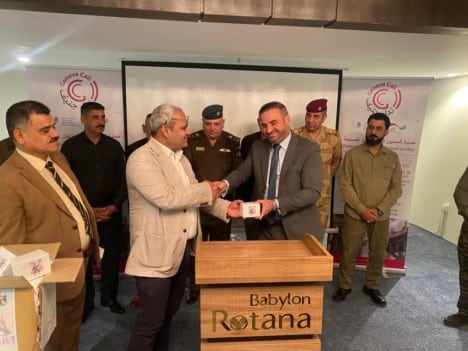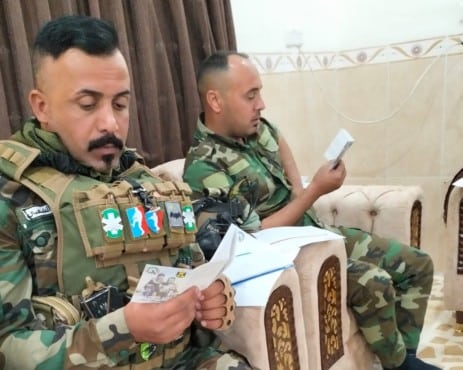Iraq
Thematic areas: Humanitarian Norms – Protection of Children – Displacement – Humanitarian Access – Protection of Civilian Infrastructure – Rule of Law – Climate Change – Protection of Education
Iraq’s conflicts have recently become more localized, involving a myriad of actors, including Armed Groups and de facto Authorities (AGDAs) backed by external powers, political and religious figures, and political parties. The potential for broader and more intense conflicts looms large.
Humanitarian challenges in Iraq are multifaceted, with internally displaced persons blocked from returning, secondary displacements due to emerging conflicts, limited access for aid organizations, land confiscations, and disputes over water and agricultural resources.
The complex context includes high unemployment rates, corruption, political discord, and environmental degradation, leading to localized conflicts and displacements. AGDAs wield significant influence in Iraq’s political and security landscape.
Ongoing political processes, like the Sinjar Agreement and talks between Baghdad and Erbil, address critical issues, including oil and gas laws and revenue distribution.
While the international community seeks to stabilize Iraq, concerns persist that various international actors inadvertently exacerbate divisions within Iraqi society along political, religious, ethnic, and cultural lines.
Geneva Call’s activities in the country
- Successful dissemination of a Code of Conduct adopted by the PMF through different workshops across areas of their deployment within the country.
- Design of implementation plans for AGDAs who signed Unilateral Declarations on humanitarian access and protection of civilian infrastructure, while engaging YBS more profoundly on the thematic of the protection of infrastructure.
- Within the purview of dialogue forums, GC brought CSOs, including INGOs, and AGDAs together to discuss pressing issues that need to be addressed. This is an unprecedented step in the context of Iraq where civilians can address their concerns directly to armed groups.
- Several children left the ranks of one of the AGDAs, and the AGDA showed more openness in its engagement with Geneva Call and its commitment to not recruiting children.
- AGDAs vacated civilian facilities thanks to Geneva Call’s intervention.
Key figures
12 Commitments signed on the protection of IDPs, humanitarian access, and the protection of civilian infrastructure.
The People’s Mobilization Forces (PMF) commission issued and rolled out the Code of Conduct for 300, 000 fighters operating under its command.
More than 8 million people were reached by Geneva Call’s social media campaigns.
Altogether, 25 commitments are signed by different AGDAs in Iraq, including CoCs and UDs.
Contact information:
Atif Hameed – DIRECTOR OF OPERATIONS AND ACTING COUNTRY DIRECTOR
ahameed@genevacall.org

